
About the Dennis Farm Charitable Land Trust.
Founded by Hope Dennis (1906-2006) and M. Denise Dennis in 2001, the Dennis Farm Charitable Land Trust, a non-profit 501(c)(3), was established to:
-
- Preserve a unique and beautiful historical site
- Conserve its natural resources
- Open the grounds to tourists and
- Develop the site into an educational and cultural resource.
Located in the scenic Endless Mountains of Susquehanna County, Northeast Pennsylvania, the 200+ year-old, 153-acre Dennis Farm was originally purchased and settled by the family of Prince Perkins and his wife, Judith, free African Americans who, in 1793, arrived in the region from Connecticut with the first wave of settlement following the American Revolution.
The Perkins descendants, the Dennis Family, have retained ownership of the property into the twenty-first century, although it hasn’t been a working farm since the early twentieth century. The history of the Perkins-Dennis Family, from colonial New England to the present is fully documented.
The Dennis Farm is listed on the National Register of Historic Places and features:
- The exquisite stonewall enclosed Perkins-Dennis Cemetery where veterans of the American Revolution, War of 1812 and Civil War are resting
- The original Prince Perkins Homestead Site
- A mile network of stonewalls built throughout the 19th century
- The Dennis Farmhouse (b. circa 1825) to be transformed to a museum
- The stonewall remains of the Barn Complex
- According to local oral history, the Dennis Farm was a station on the Underground Railroad
A selection of the Dennis Farm’s nineteenth century artifacts, books and photographs are in the permanent collection of the Smithsonian Institution’s National Museum of African American History and Culture.
Activities and Initiatives
- Each year, from Spring through Fall, the Farm is open for tours.
- Every October, DFCLT hosts an annual symposium in partnership with nearby Keystone College
- Each year, we have educational partnerships with colleges, universities and high schools for educational courses or projects selected by the schools.
- In February, in partnership with the Museum of the American Revolution in Philadelphia, DFCLT hosts “The Lonaé A. Moore Forum, It Begins with Each of Us: Fostering Racial Understanding. Cash prizes are awarded to students who submit videos based on what they have learned from the Forum
- DFCLT awards educational scholarships to individual students, has established endowments at two HBCU (historically black colleges and universities) and made financial contributions to four other schools, including Bloomsburg University where Edith A. Dennis (1899-1980) was the first African American boarding student, graduating in 1919, followed by her two sisters Marion, in 1921, and Hope, in 1925.
As part of the Commonwealth of Pennsylvania’s celebration of the United States Semiquincentennial, (America250PA) The Dennis Farm Charitable Land Trust has been chosen, as one of seven historical sites, to receive a commemorative Semiquincentennial Bell, a four-foot replica of the Bicentennial Bell presented to Independence National Historical Park by Queen Elizabeth II, in 1976.
—Jacquelyn D. Serwer, Chief Curator
Smithsonian Institution National Museum of African American History and Culture
—Brent Leggs, National Trust for Historic Preservation
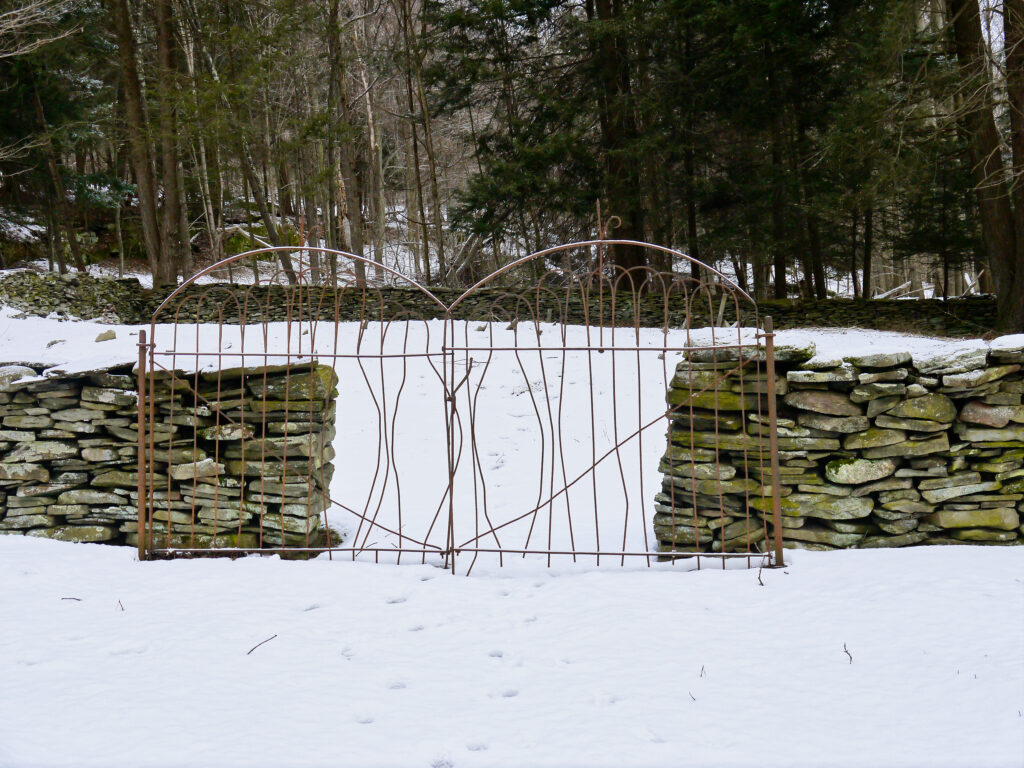
THE PERKINS-DENNIS CEMETERY
The remains of family members born in the eighteenth and nineteenth centuries, including veterans of the Revolutionary War, are resting in the Perkins Dennis Cemetery. One Civil War veteran who was a friend of the family and men and women who died on the Underground Railroad are among the fifty souls interred in the cemetery.
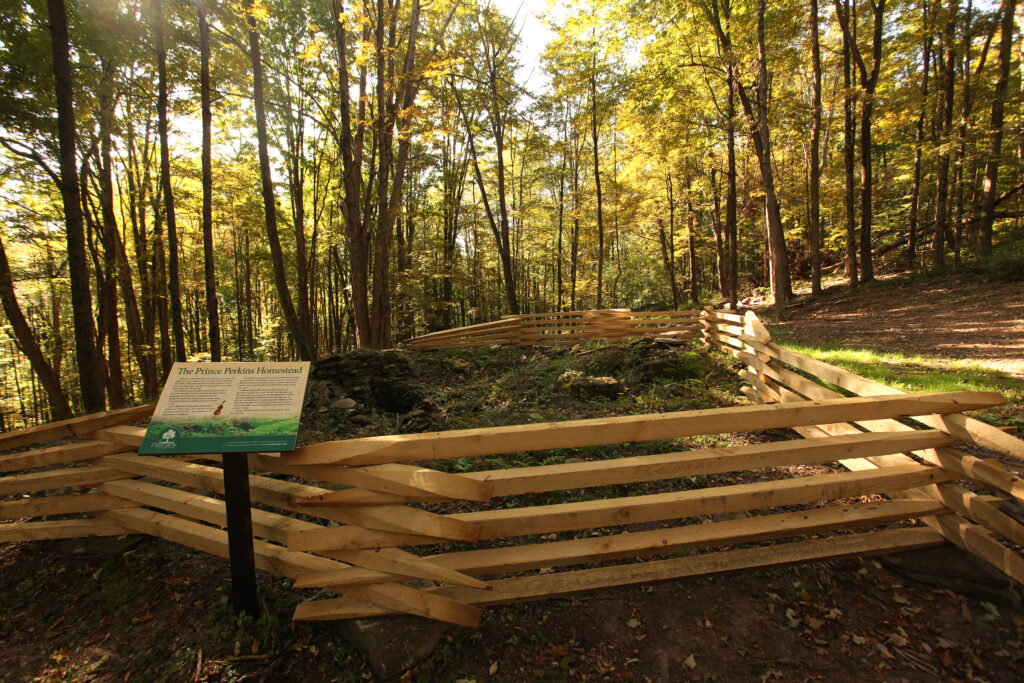
THE PRINCE PERKINS ARCHEOLOGICAL SITE
The Perkins’ early homestead including the foundation of the house, spring, garden markings, and well are located at the hilltop.
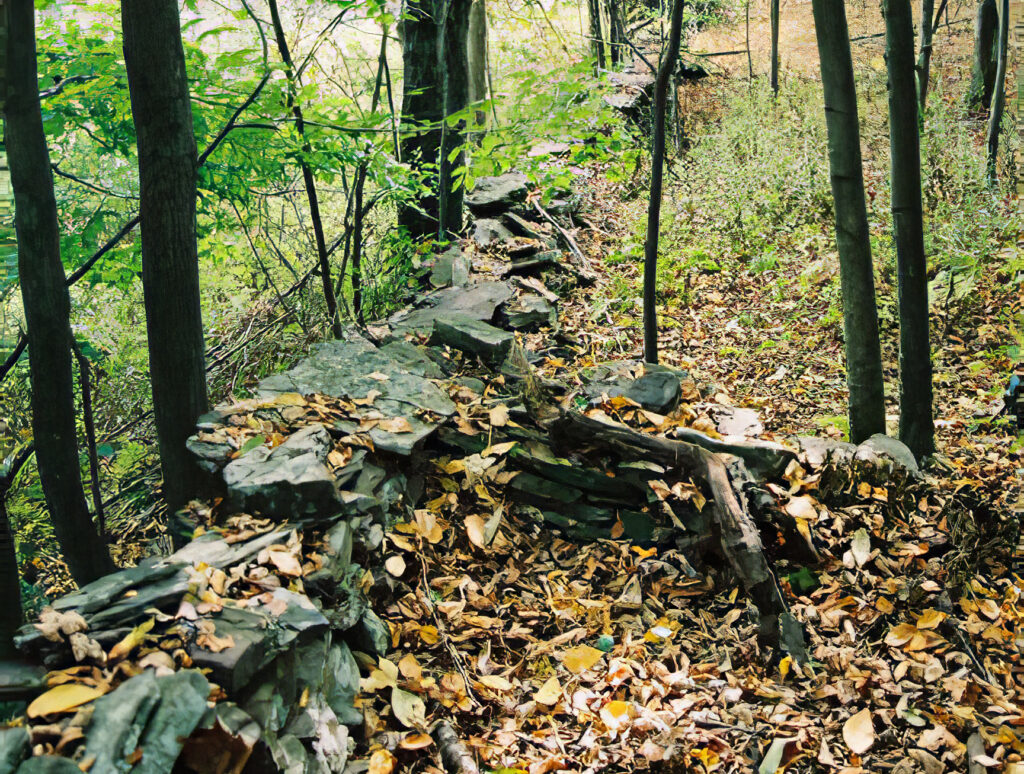
FIELDSTONE WALLS
An elaborate series of stone walls, built during the nineteenth century, define the perimeter and individual sections of the property. The walls help track changes in the farm throughout the century.
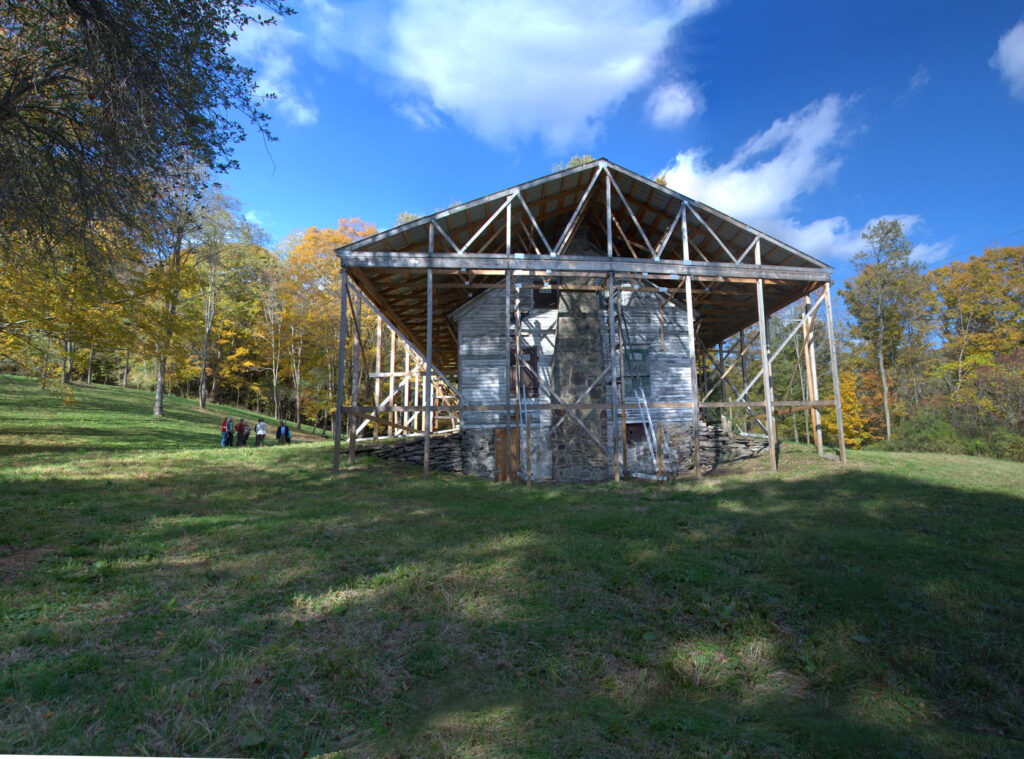
THE FARMHOUSE
Built in the first quarter of the nineteenth century and restored in 1939, the farm house is an example of a classic timber frame saltbox, reflecting the family’s New England background.
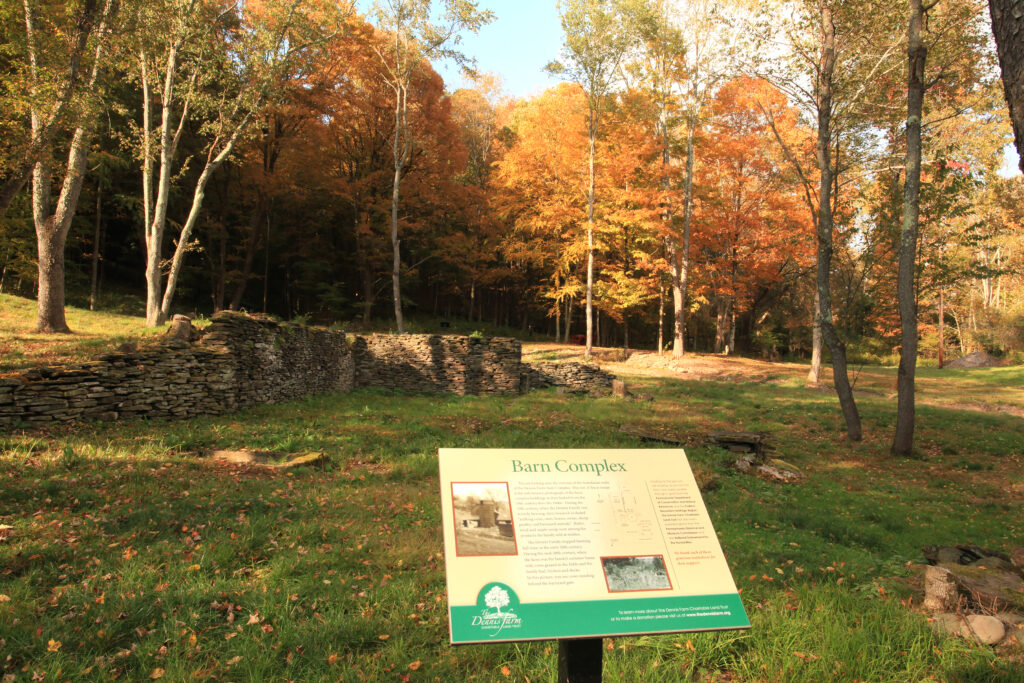
BARN COMPLEX RUINS
The stone walls of the original barn complex foundation, also, trace the growth of the farm from the early 19th to the early 20th century.
Because it was never modernized, the Dennis Farm has the footprint of a New England farm circa 1800.
According to a study prepared by a team of archeological and historical researchers, “The Dennis Farm represents an exciting opportunity to blend archeological and environmental history at one location… There are presently no other locations in the northeast that combine these ingredients and that are trying to actively interpret them, preserve them, and present them to the public. The property’s African American ownership for over two centuries is unique in northeastern Pennsylvania and is an important story that needs telling…Pennsylvania scholars have also identified the Dennis Farm as a location associated with Underground Railroad History.”

